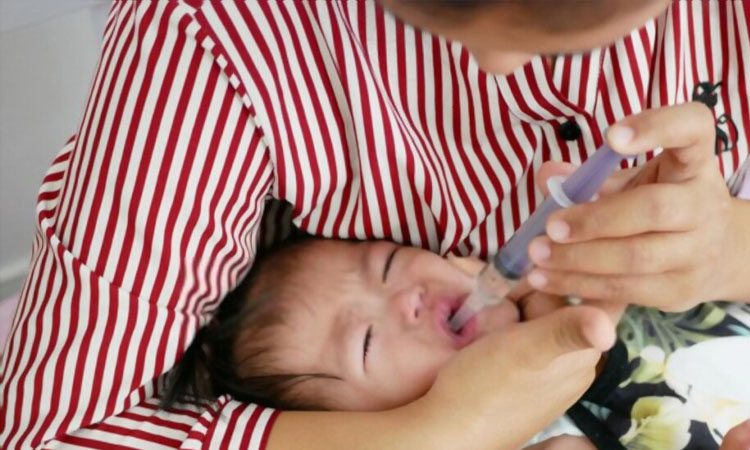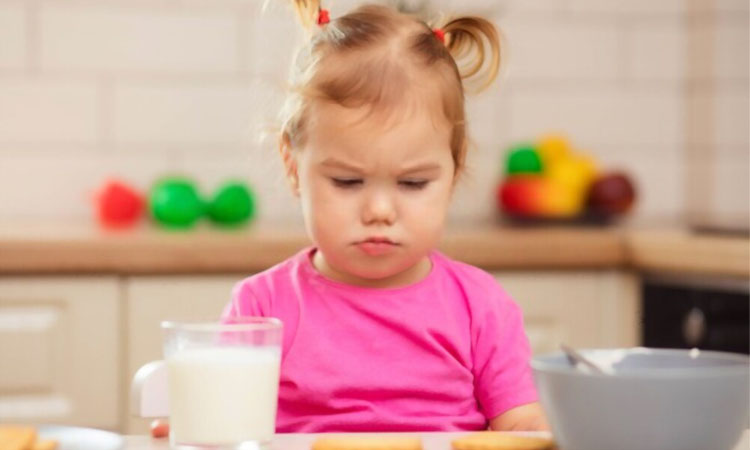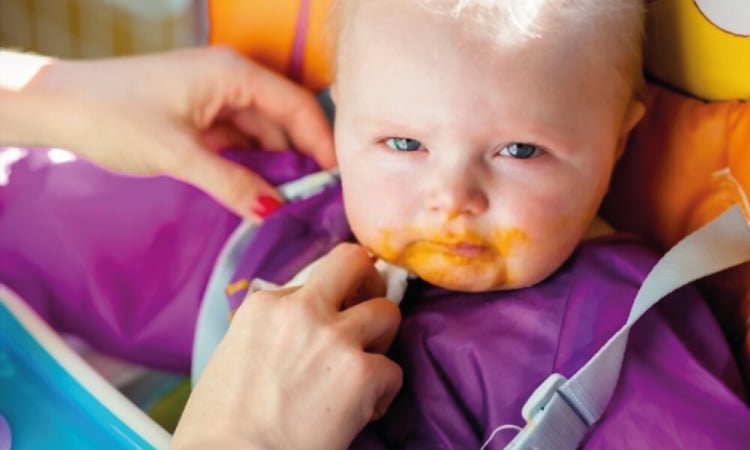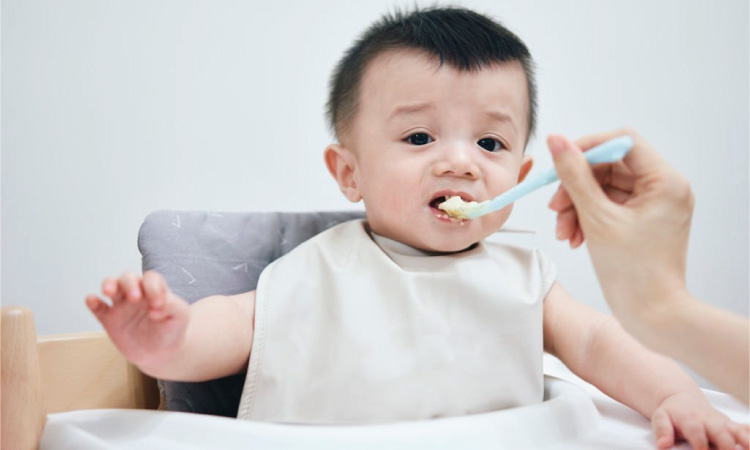Most of us parents assume the role of nurturers for our children, and quite rightly so. We try to feed our children healthy foods and a balanced diet to help them grow and thrive. The stress on feeding a child the right balance of carbohydrates, proteins, fats, vitamins and minerals, the essential nutrients for a child’s growth, is so much so that we tend to even force-feed a child. In fact, force-feeding toddlers and older children is a largely prevalent and accepted practice in ours and many other cultures. Let us know about the implications of force-feeding toddlers.
What Is Meant By Force-Feeding Toddlers?
Basically, the use of physical or psychological force to make a child eat something that he does not want to eat is referred to as force feeding. Parents tend to control all aspects of a meal that a child has, namely –
- What a child will eat
- How much a child should eat
- At what time the child will eat
Not only this, a child is psychologically and physically pressurised to eat a particular food, at a given time and finish the given quantity. A want to eat something else that is on the plate, or eat later is outrightly dismissed. The child is also not let to eat how much he wants, if he wishes to have a smaller quantity.
How Do Parents Force-Feed Their Children?

The nurturers, that is, us parents, assume that by making our children finish larger quantities of food we are helping them grow healthy and strong. And in order to make sure that they do finish their plate, parents’ resort to the below forces –
- Cajoling, coaxing and even scolding to make a child finish his food
- Toddlers are often blackmailed to eat larger portions of foods
- Rewards and punishments are often used as a strategy to make a child eat
- Comparison with other children is often done to evoke feelings of shame and competitiveness
- Guilt is inculcated in the child who refuses to eat
- Fear is often used to force a child to finish his food
- Parents also force food in their child’s mouth in an attempt to make them finish
- Walking and running behind the child in order to get him to eat
If this looks like your routine to get your child finish his food every day, then you need to stop right now and take stock of the situation. Force-feeding a child has quite a few serious implications and can cause your child to develop life-long aversion to food and eating.
Related Reading: 6 Healthy Alternatives To Milk For Toddlers
Consequences Of Force-Feeding Toddlers
While force-feeding toddlers is quite an old practice, it is largely prevalent in developing nations. In fact, on our own country, mother’s make it their daily 3 times mission to ensure that whatever they think their child should have, he should. We’d go to any length and breadth to ensure that the plate is licked clean, and the child has eaten to the mother’s content – no matter if it is by choice or by force. This does have some negative effects, such as –
1. A force-fed will child hate meal times
If meal times at your house are times of struggle, screams, threats and cries, then there is no way you can get your child to eat happily. As soon as your child will see you with the plate, he or she will dread the coming hour and start to throw tantrums right away. The child will not even wait to see what’s on the plate, but the sight of you would be enough to send your child on a panic mode.
No one likes to do anything that is associated with fervent struggle and force. Toddlers are no different.
2. Development of food aversion for particular foods
Perhaps you have a picky child who does not like vegetables. You are obviously worried and use forces of psychology to make him or her eat her greens. But, look from your child’s perspective – he does not like the vegetables, and every time you come to him with a bowl full of them, there is a battle and you resolve it by force.
Ultimately, the child will detest the vegetables and associate trauma with them. Force-feeding a particular food-group to your child can make him develop life-long aversion to it.
3. A force fed child will never develop healthy eating habits
A child says “No” but you don’t hear it. You continue to feed the child, even if you need to push the food in his mouth. Perhaps, you are successful as well. But guess what? Children who are force-fed will get into unhealthy eating habits causing conditions like obesity. Reason? A child does not know when to stop eating and continues to eat even when he is full.
A force-fed child has no control over the food habits she develops as she grows. Choice is yours!
Related Reading: 13 Common Foods For Weight Gain In Toddlers
4. A toddler who is force-fed will associate negativity to food
Trauma and panic gets associated with food when you forcefully make your child finish whatever you have put on his plate. The sight of food will make a child uneasy, and all the bad memories of you shouting and screaming and threatening will come into his mind. You think such a child can be a healthy eater? No!
Food is supposed to bring about happiness and contentment in life, not negativity. So watch it early!
5. Appetite is gone for a toss

The desire to eat food even when someone is not hungry is known as appetite. But when mealtimes are a battle, your child has to fight every day, he may lose his appetite quickly. The idea of eating food will make him feel uncomfortable, nauseous and even sick. He will have no desire to eat when you place his favourite foods in front of him.
6. Your child may vomit and become sick
Many parents push food in their child’s mouth thinking they will end up swallowing it. Sometimes this may happen, but this can also be a dangerous condition and can cause a child to throw up. He may vomit, feel giddy and sick and hate food even more.
Related Reading: Peanut Butter For Babies- When, How, Risks And Precautions
7. The idea of chewing becomes alien
When a child is forcefully fed under threats, he or she will try to gulp the food down their throats. Kids will simply not bother to chew or taste the food, but only look to finish the food to end the ordeal. This can result in poor eating habits, constipation and other health issues.
It is imperative that a child chews, tastes and relishes the food he eats, even if he eats a small amount.
Conclusion

If you have a picky eater, or a child who does not eat food, you can look at making his meals an interesting combination of health and taste. Cut back on processed foods, junk items, cold-drinks and juices and anything else that has lower nutritional value and substitute with healthy alternatives. Most fussy eaters respond well to creative ideas like serving differently trying new things, and varied dishes.

